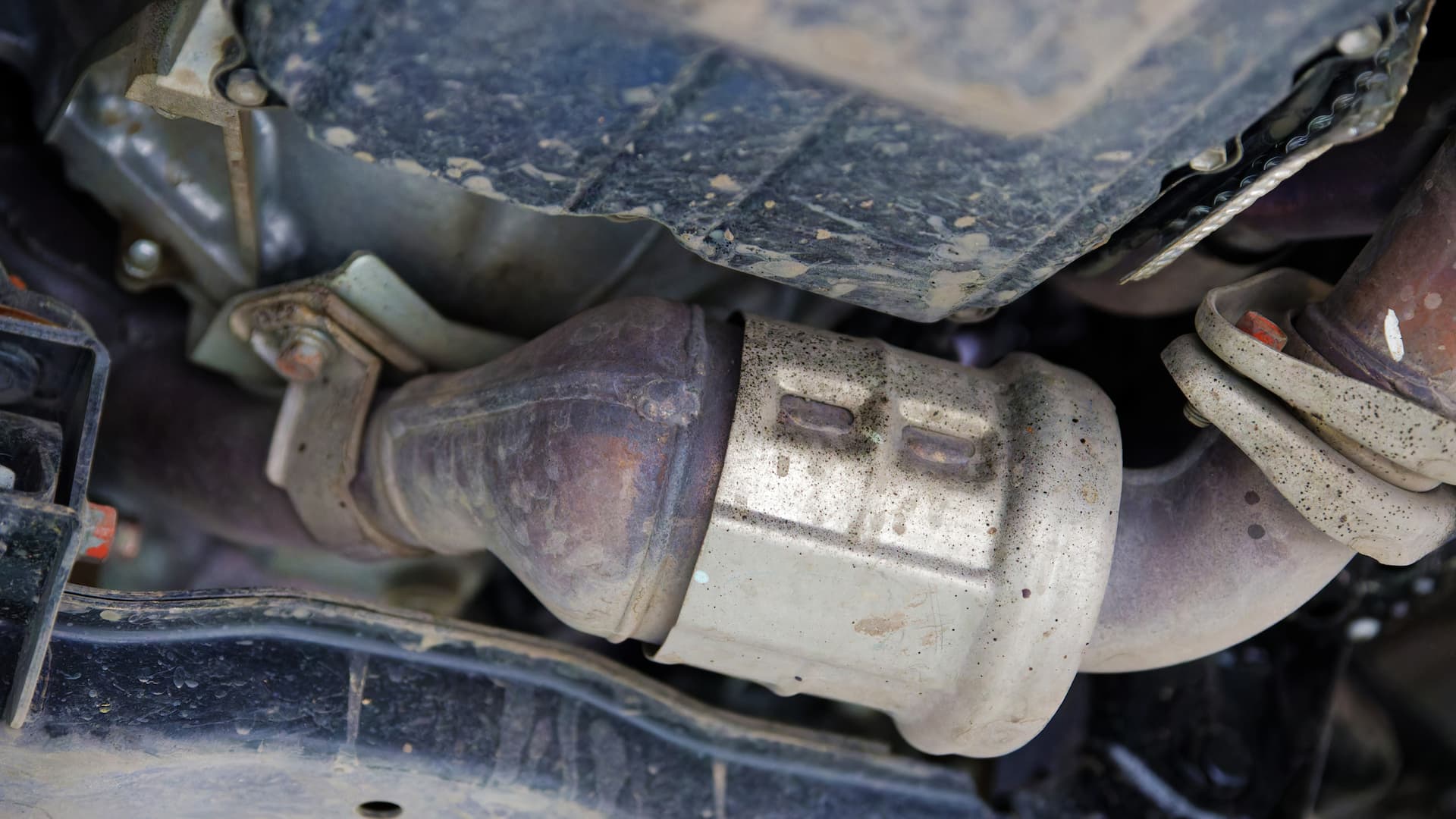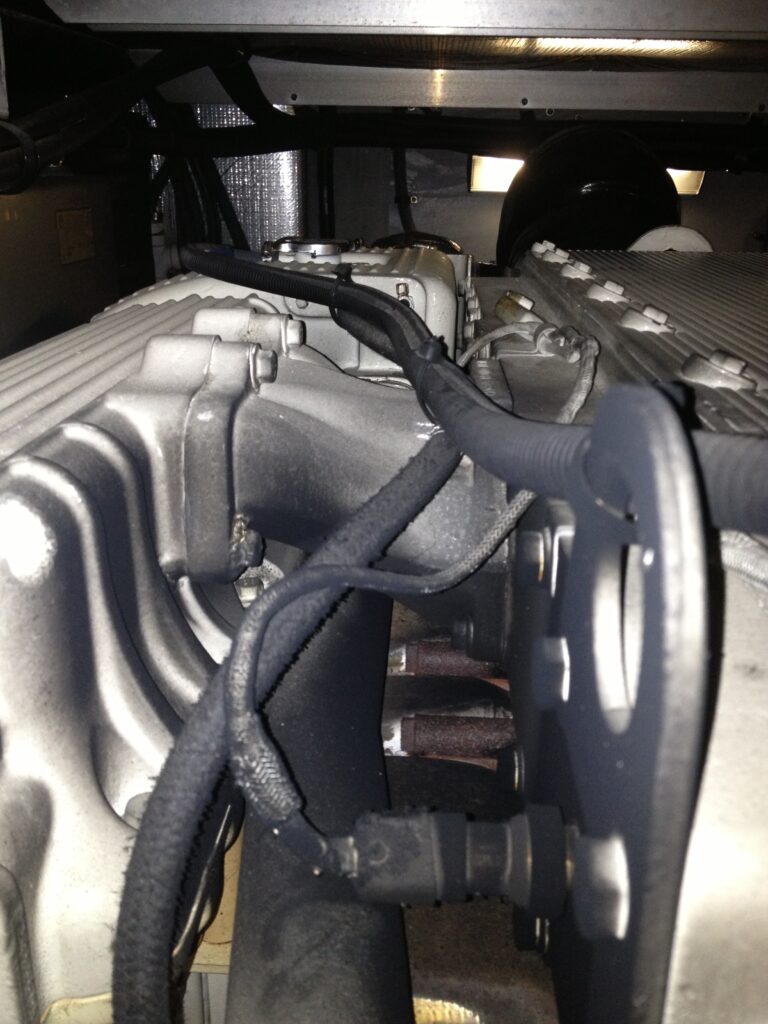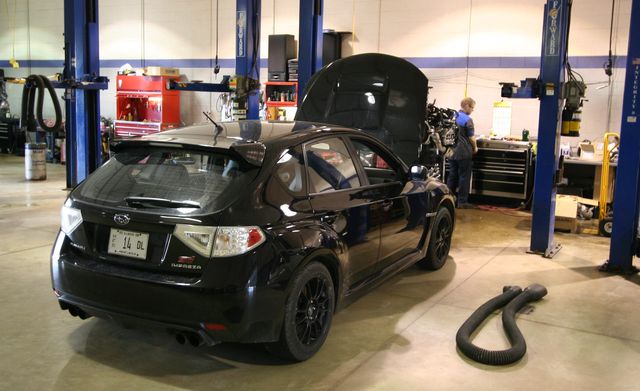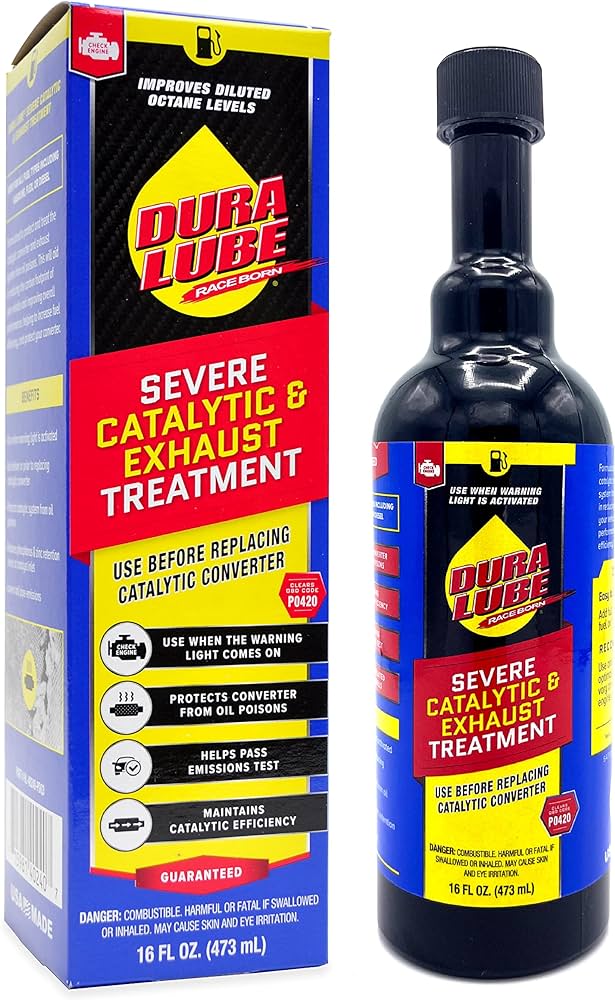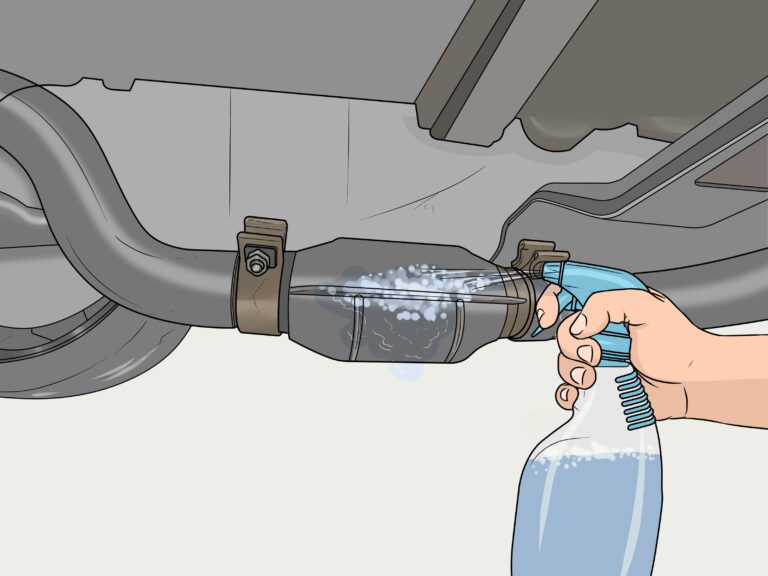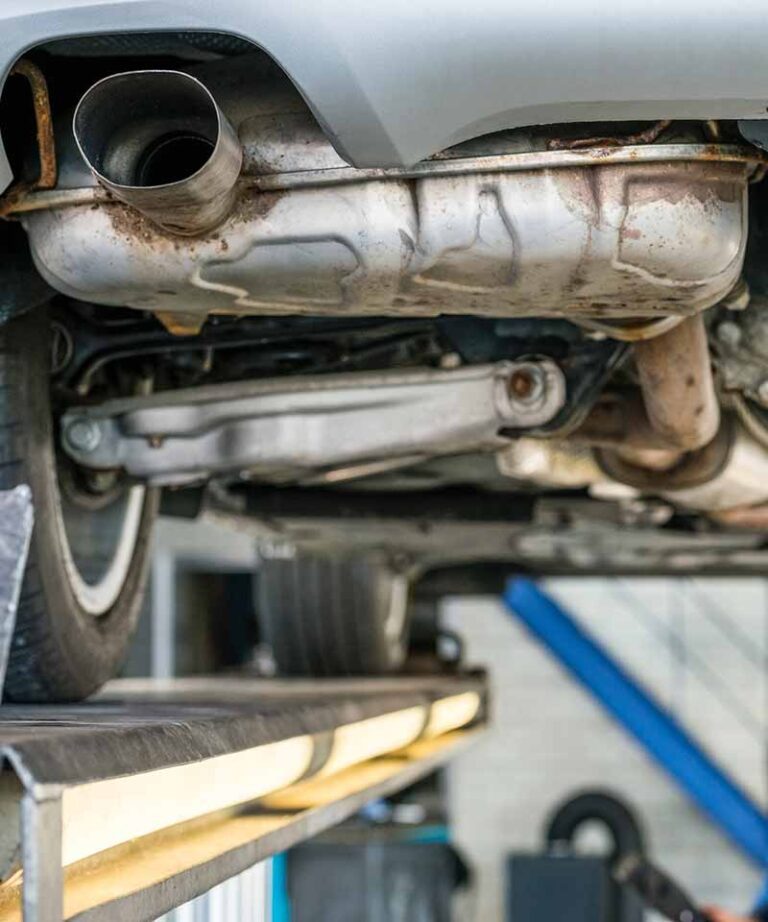How Long Can I Drive With Bad Catalytic Converter? Discover the Risks!
You can drive with a bad catalytic converter for a limited period before it affects your vehicle’s performance and emissions. A bad catalytic converter is an essential component of a vehicle’s exhaust system, and it helps reduce harmful emissions.
If it is failing, your car’s overall efficiency and engine performance may decline. Additionally, continued driving with a damaged catalytic converter can lead to further damage to other engine components. It is crucial to address the issue promptly to ensure your vehicle operates smoothly and meets emission standards.
Regular maintenance and inspections by a qualified mechanic are recommended to identify and rectify any catalytic converter issues promptly.
What Is A Catalytic Converter And How Does It Work?
A catalytic converter is a key component of a vehicle’s exhaust system. Its primary function is to reduce the harmful emissions produced by the engine. The catalytic converter uses a combination of chemical reactions to convert pollutants into less harmful substances before they are released into the atmosphere.
Brief Explanation Of The Purpose And Function Of A Catalytic Converter
The catalytic converter works by using a catalyst, typically made of platinum, palladium, and rhodium, to facilitate chemical reactions that convert harmful gases such as carbon monoxide, nitrogen oxides, and unburned hydrocarbons into less harmful substances like carbon dioxide, nitrogen, and water vapor.
There are three main types of catalytic converters: 1. Two-way converters, which primarily reduce carbon monoxide and unburned hydrocarbons. 2. Three-way converters, which also reduce nitrogen oxides. 3. Diesel oxidation catalysts, which specifically target diesel engine emissions.
Each type has its own composition and structure, designed to optimize the conversion of specific pollutants based on the type of engine and fuel being used. It is important to note that driving with a bad catalytic converter can negatively affect the vehicle’s performance and contribute to increased emissions.
Signs And Symptoms Of A Bad Catalytic Converter
Signs and symptoms of a bad catalytic converter:
Unusual exhaust odor and appearance: One of the common indications of a failing catalytic converter is the presence of a distinct smell from the exhaust. A foul odor, resembling rotten eggs, might emanate due to the converter’s inability to convert hydrogen sulfide in the exhaust gas. Additionally, visually inspecting the exhaust can reveal a darker or thicker smoke.
Decreased engine performance and poor fuel efficiency: A damaged catalytic converter can lead to reduced engine power and overall performance. The vehicle may struggle to accelerate, experience a lack of power, or produce rough idling. Moreover, a failing converter can negatively impact fuel efficiency, resulting in increased fuel consumption and frequent visits to the gas station.
Diagnostic trouble codes (DTCs) and check engine light: When encountering catalytic converter issues, the vehicle’s onboard diagnostic system will often generate specific Diagnostic Trouble Codes (DTCs). These codes can be retrieved using an OBD-II scanner, providing insights into the problem area. Furthermore, a malfunctioning converter can trigger the vehicle’s check engine light, indicating the need for immediate attention.
The Risks Of Driving With A Failing Catalytic Converter
Driving with a failing catalytic converter can have numerous risks and consequences. One of the main concerns is the increased emissions and environmental impact it can cause. A faulty catalytic converter is unable to effectively convert harmful gases into less harmful substances, resulting in higher emissions of pollutants into the air. This not only contributes to air pollution but also poses a threat to the overall environment.
Moreover, a bad catalytic converter can also lead to potential damage to other components of the exhaust system. The inefficiency and improper functioning of the converter can cause an increase in backpressure, putting strain on the exhaust manifold, oxygen sensors, and even the engine itself. This can eventually result in expensive repairs and replacements.
Additionally, driving with a faulty catalytic converter can have legal implications. Many countries and states have regulations in place that require vehicles to have a properly functioning converter. Violating these regulations can lead to significant fines and penalties.
Poor Maintenance Practices And Driving Habits
Driving with a bad catalytic converter can lead to serious issues and should not be ignored. Neglecting regular maintenance and inspections is one of the main causes for a catalyst failure. Over time, the converter can become clogged with excessive carbon deposits and contaminants, reducing its efficiency. This can result in poor fuel economy and increased emissions levels. In addition, driving with a malfunctioning engine or misfiring spark plugs can further damage the catalytic converter. It is important to address any engine performance issues promptly to prevent further damage. Furthermore, using improper fuel and oil can also contribute to catalytic converter failure. Low-quality or contaminated fuel can increase the amount of carbon buildup, while using the wrong type of oil can cause excessive engine wear and oil contamination. Regular maintenance, including inspections, can help identify and address potential issues before they become more severe.
Environmental Factors And Contaminants
Driving with a bad catalytic converter can have detrimental effects on both your vehicle and the environment. Several environmental factors and contaminants can contribute to the damage of your catalytic converter.
- Exposure to corrosive substances such as sulfuric acid or hydrochloric acid can cause corrosion and breakage in the catalytic converter, leading to decreased effectiveness and increased emissions.
- Contamination from fuel additives and engine oil can also be harmful. Chemicals present in these substances may coat the catalyst and reduce its ability to convert harmful gases into less harmful emissions.
- The impact of excessive heat and temperature variations can lead to thermal shock, causing the internal structure of the catalytic converter to crack or disintegrate. This can result in reduced performance and potential blockage of exhaust flow.
Driving with a bad catalytic converter should be avoided as it can compromise your vehicle’s performance and contribute to environmental pollution. It’s important to have a qualified mechanic inspect and replace a damaged catalytic converter in order to maintain the health of your vehicle and minimize pollution.
Exhaust System Issues And Catalytic Converter Failure
Exhaust system issues and catalytic converter failure:
A bad catalytic converter can lead to various performance issues in your vehicle’s exhaust system. Whether it’s due to exhaust leaks or improper installation, these problems can cause significant damage to the catalytic converter over time.
Damage caused by physical impact or accidents:
Accidents or physical impact can severely damage the catalytic converter. Whether it’s a collision, hitting a pothole, or driving over a speed bump too quickly, these incidents can result in the destruction of the converter, leading to its failure.
Influence of engine modifications and aftermarket parts:
Modifying your engine or installing aftermarket parts can also contribute to catalytic converter failure. The altered engine performance and increased emissions from these modifications can put excessive strain on the converter, causing it to wear out faster.
Routine Maintenance And Inspection Tips
Properly maintaining the engine and addressing any malfunctions promptly are key to prolonging the life of a catalytic converter. Regularly scheduled maintenance allows for the identification of potential issues before they become major problems. This includes checking for any signs of damage or wear, such as rust or holes in the converter. In addition, periodic inspection and cleaning of the catalytic converter can help optimize its performance and prevent clogging. It is important to remember that a bad catalytic converter can negatively impact fuel efficiency and overall engine performance. Therefore, drivers should not delay in addressing any issues with the converter and should seek professional assistance if necessary.
Driving Habits For Optimal Catalytic Converter Health
Regular maintenance and good driving habits are essential for maintaining the health of your catalytic converter. One way to do this is by avoiding excessive idling and short trips. Idling for extended periods of time can cause a build-up of unburned fuel in the catalytic converter, leading to clogging and decreased efficiency. Additionally, frequent short trips prevent the converter from reaching its optimal operating temperature, which can result in incomplete fuel combustion.
Using high-quality fuel and oil is also important for the longevity of your catalytic converter. Lower quality fuel may contain higher levels of impurities that can damage the converter over time. Similarly, using low-grade oil can result in increased engine deposits, which can negatively impact the converter’s performance.
When driving, it’s advisable to maintain moderate speeds and avoid rapid acceleration. Aggressive driving not only increases fuel consumption but also produces higher levels of exhaust emissions, which can put additional strain on the catalytic converter. By adopting these driving habits, you can maximize the lifespan and effectiveness of your catalytic converter, ensuring that it continues to reduce harmful emissions and keeps your vehicle running smoothly.
Understanding When To Replace Your Catalytic Converter
One of the concerns that vehicle owners have is how long they can continue driving with a bad catalytic converter. It is important to understand the warning signs and know when it is time to replace this crucial component of your vehicle’s exhaust system.
Listening to your vehicle’s warning signs is crucial in determining if your catalytic converter needs to be replaced. Unusual noises, such as rattling or a loud exhaust, may indicate a problem. Decreased engine performance and reduced fuel efficiency can also be signs that your catalytic converter is failing.
Consulting with a trusted mechanic or automotive professional is essential when it comes to diagnosing and addressing issues with your catalytic converter. They have the expertise and experience to properly evaluate the condition of the converter and provide you with accurate information and guidance on replacement.
Considering the age and overall condition of the catalytic converter is another important factor. Over time, the converter may deteriorate due to exposure to high temperatures and contaminants. If your vehicle is older and has a high mileage, it may be more prone to catalytic converter problems.
Replacing a bad catalytic converter is crucial for the proper functioning of your vehicle and to meet emissions standards. Ignoring a failing converter can lead to further damage to your engine and exhaust system. So, if you notice any warning signs or suspect a problem with your catalytic converter, it is important to address the issue promptly.

Credit: www.autozone.com
Frequently Asked Questions Of How Long Can I Drive With Bad Catalytic Converter
What Happens If You Drive A Car With A Bad Catalytic Converter?
Driving a car with a bad catalytic converter can lead to decreased performance, failed emissions tests, and potential damage to the engine and other components. It’s essential to have it fixed promptly for a smooth-running vehicle.
What Will Happen To My Car If I Don T Fix The Catalytic Converter Immediately?
Ignoring a faulty catalytic converter can result in reduced performance, decreased fuel efficiency, and potential damage to your engine. Additionally, it can lead to an increase in harmful emissions, which could result in your vehicle not passing emissions tests. It is recommended to address this issue promptly.
How Long Can You Wait To Replace Catalytic Converter?
Catalytic converters should be replaced as soon as they show signs of damage or malfunction. There is no specific time limit, but delay can lead to reduced performance and potential damage to other parts of the vehicle. It’s important to have it replaced promptly to ensure proper emission control and engine function.
Can I Unclog My Catalytic Converter?
No, it is not recommended to unclog your catalytic converter. It requires professional assistance and specialized equipment. Attempting to unclog it yourself may cause damage to the car’s emission system and is against environmental regulations. Send your vehicle to a qualified mechanic for proper diagnosis and repair.
Conclusion
Driving with a bad catalytic converter is not recommended as it can worsen vehicle performance and lead to more costly repairs. It is crucial to address the issue promptly to avoid damaging other components of your vehicle and polluting the environment.
Regular maintenance and timely replacement of faulty catalytic converters are essential for a smooth and eco-friendly driving experience.
